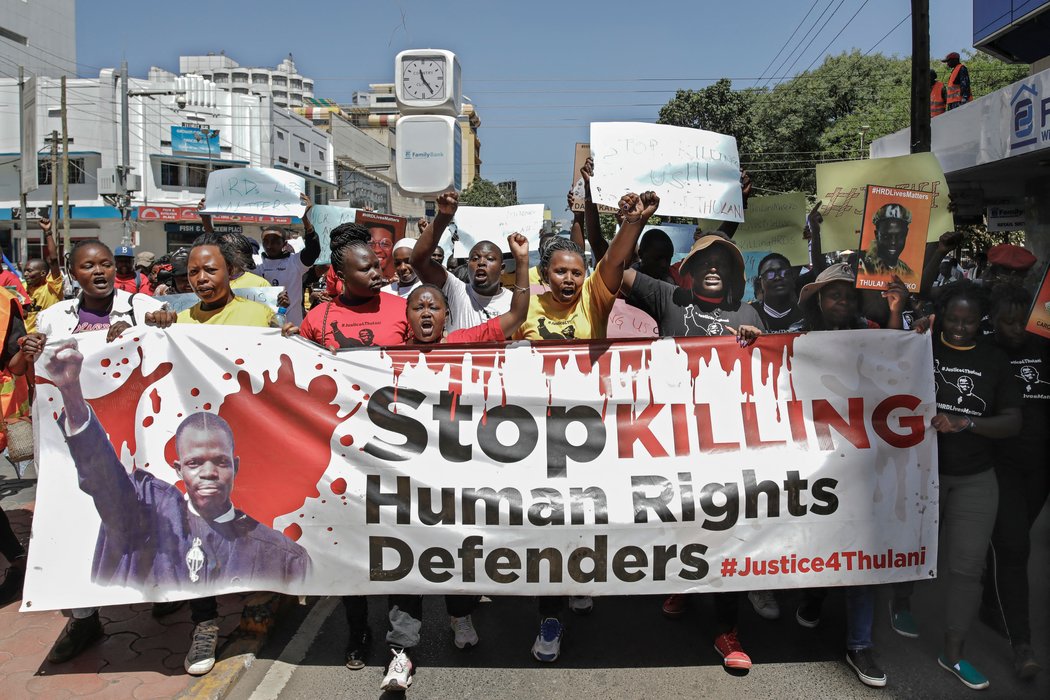
Introduction
Since May 2021, Eswatini has made no meaningful progress in addressing severe human rights violations against pro-democracy activists, journalists and trade unionists. The African Commission on Human and People’s Rights (ACHPR) Resolution 554 which urges democratic reforms in the kingdom has been effectively silenced and Resolution 569 on protecting civic space has similarly failed to prompt any substantial action.
Separately, despite global calls for regional leaders to prioritise Eswatini’s human rights crisis and pressure the government to repeal these repressive laws and respect fundamental freedoms during the 44th SADC Summit on 17th August 2024, Eswatini remains unaccountable, as demonstrated by the exclusion of Eswatini from the SADC Organ Troika's Agenda following a request by King Mswati III. This lack of regional accountability leaves pro-democracy defenders without redress and exacerbates human rights violations.
Association
Supreme Court revives repressive sedition provisions
On 13th August 2024, Eswatini’s Supreme Court overturned a 2016 High Court ruling that had invalidated several repressive sections of the Suppression of Terrorism Act (STA) and the Sedition and Subversive Activities Act (SSA). The High Court had originally found that these provisions violated constitutional rights to freedom of association, expression and assembly. The decision came in response to cases brought by activists, including the late Thulani Maseko and others who were charged under these laws for participating in pro-democracy actions.
The Supreme Court’s decision allows the government to continue using vague terrorism laws to suppress political opposition and human rights activism. This ruling could further embolden authorities to intensify their crackdown on dissent. On 15th July 2024, Eswatini pro-democracy lawmakers Mduduzi Bacede Mabuza and Mthandeni Dube received severe prison sentences —25 years for Mabuza and 18 years for Dube—over charges of "terrorism" and murder connected to the 2021 protests in Eswatini, Africa’s last absolute monarchy.
Eswatini authorities target activist’s widow
Tanele Maseko, the widow of Thulani Maseko who was killed in January 2023, has reportedly been targeted by the Eswatini government with harassment and surveillance to stop her from seeking justice and carrying on her husband’s human rights work. On 27th March 2024, as she crossed the Ngwenya Border between South Africa and Eswatini with her children and a helper, she was detained because officials flagged her passport, confiscated her phone and informed the police. After being questioned for four hours, she was released with a follow-up at the Mbabane police station scheduled, which was later postponed to 2nd April 2024 after her lawyers intervened. This incident came shortly after the Eswatini Prime Minister claimed in January 2024 that she was obstructing justice, following her acceptance of a 2023 Magnitsky Human Rights Award on her husband’s behalf.
Amnesty International urged Eswatini authorities to cease harassment and instead focus on a prompt, thorough and impartial investigation into Thulani Maseko's murder, holding those responsible accountable.
Opposition leader allegedly poisoned
Eswatini's main opposition leader, Mlungisi Makhanya, President of the People's United Democratic Movement (PUDEMO), was allegedly poisoned and rushed to a hospital in Pretoria, South Africa, in critical condition on 24th September 2024.
Makhanya has been a target of King Mswati's regime, which has been cracking down on political activists and human rights defenders. Previously, his alternative home at Malindza was bombed and destroyed during recent political unrest.The Eswatini government has openly threatened to apprehend activists hiding in South Africa. This incident follows the abduction of Thabo Kunene, alleged Commander of the Swaziland International Solidarity Forces (SISF), and the assassination of human rights lawyer Thulani Maseko.
ICJ calls on the South African Police Services to conduct a prompt, thorough and impartial investigation into circumstances of Makhanya’s incapacitation and to bring to justice any persons determined to be responsible for any criminal conduct related to this incident.
Peaceful Assembly
Crackdown on public gatherings and political dissent
The government has implemented increasingly draconian measures to stifle opposition, including bans on public gatherings and widespread surveillance. Currently, in practice, no public gatherings are permitted in Eswatini, as confirmed by Eswatini Newsroom. This ban was reinforced by the Ministry of Housing and Urban Development by issuing a warning statement to the public against participating in or organising unauthorised gatherings due to concerns over potential political unrest linked to the People's United Democratic Movement (PUDEMO)'s uprising planned for 17th October 2024. The government cites public safety and security concerns, requiring individuals to adhere strictly to the Public Order Act No. 12 of 2017 and the Code of Good Practice in Public. This ongoing ban on public gatherings reflects the government's broader efforts to stifle political dissent and prevent the expression of pro-reform sentiments.
Expression
Media restrictions and government criticism
Media in Eswatini face severe restrictions, especially when reporting on issues related to the monarchy or the government. According to Freedom House’s Freedom in the World 2024 Report, eSwatini scored 17 out of 100 . It concluded that eSwatini was "not free" after receiving a score of one out of forty for political freedom and sixteen out of sixty for civil rights.
At a breakfast meeting held on 13th September 2024, Times of ESwatini Managing Editor Martin Dlamini questioned the Anti-Corruption Commission (ACC) as to when they would arrest those who allegedly stole public funds and caused the health system to collapse. He accused the ACC of either being ineffective or unwilling to go after powerful people involved in corruption. In response, Prime Minister Russel Dlamini dismissed Martin’s questions, accusing the Times of being too negative about the government and the king and told Martin to "swallow" his own comments, treating them as just his personal opinions.